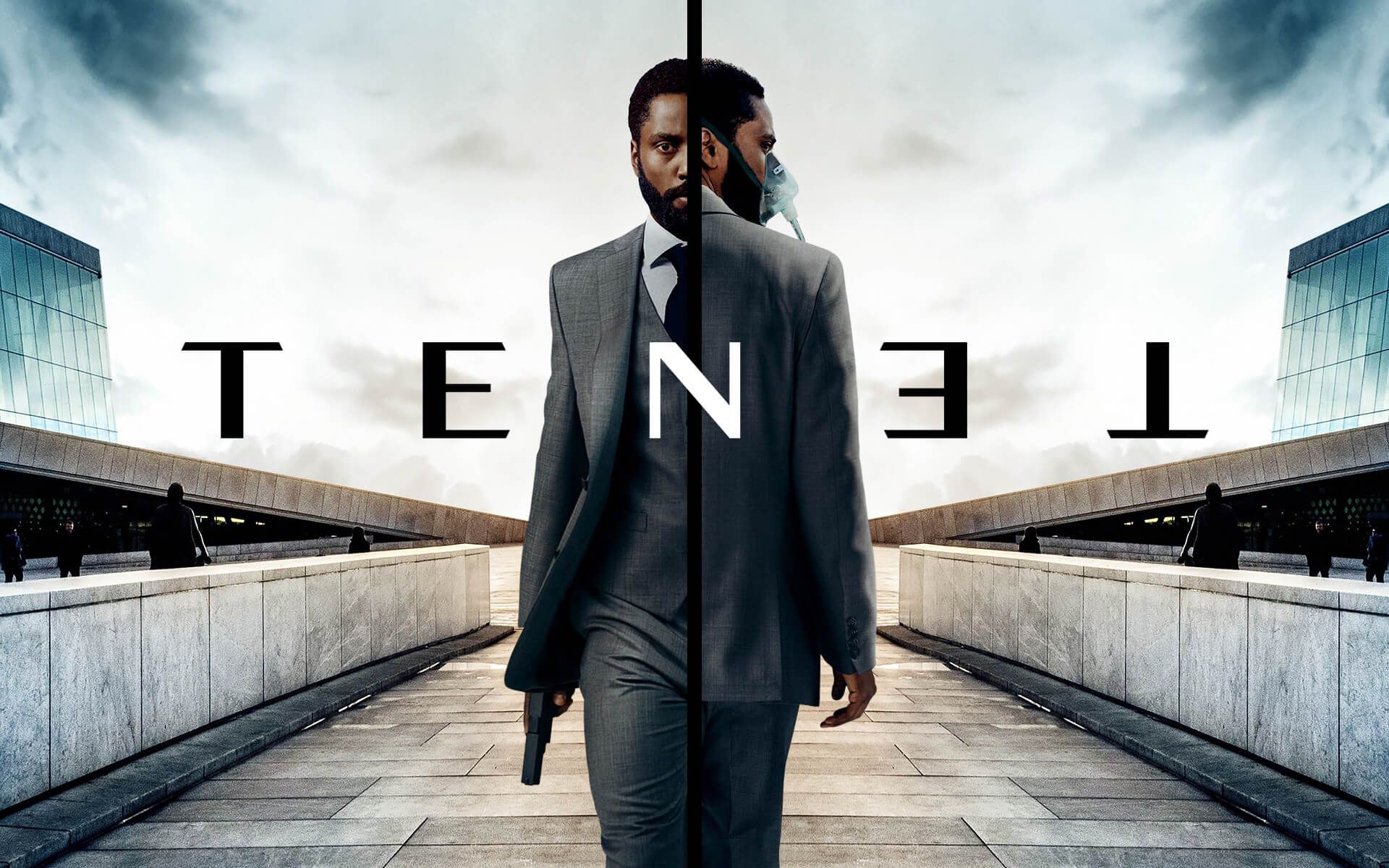
Tenet - A Double Take
Double Take
Daisy Cox, classicist, takes on English student Angus Warburg as they give their contrasting takes on Christopher Nolan's "cinema-saving" film.
Daisy Cox, Angus Warburg
Witness below a debate for the ages... Daisy Cox, classicist, takes on English student Angus Warburg as they give their contrasting takes on Christopher Nolan's "cinema-saving" film Tenet.
Daisy Cox – criticism for Tenet
Christopher Nolan is perhaps one of the most baffling filmmakers of the 21st century. Some of his films are masterpieces, which reflect the very pinnacle of modern film production– take the visually stunning Inception, or the expertly-crafted script of Interstellar. Others, such as with Nolan’s latest film Tenet, are bloated, cliched two-hour long bouts of confusedly asking “Why am I actually making myself watch this?”
Perhaps my biggest grievance is with the writing and direction of the film’s chief characters. Kenneth Branagh, an actor capable of great work, is seen depressingly repeating the exact same villainous role in he played Jack Ryan: Shadow Recruit (yes, seriously - the one with Chris Pine in it); that of a Russian mobster with a dreadfully offensive accent. This pantomime villain is paired with the awfully one-dimensional Kat, played by Elizabeth Debicki. As has been pointed out by previous commentators, Nolan’s female characters always seem to have a disappointing lack of agency in comparison to their male counterparts. In this case, I nearly expired at the 500th time Kat cries out for the “safety of her son” exclusively, reducing her character to an annoying presence who seems to only be there to artificially heighten tension (which feels unnecessary, given the already apocalyptic world-ending plot!)
Furthermore, I don’t believe there is a single soul on earth who fully understands the central time-bending concept of Tenet. Whilst watching the film, you are often confronted with the following question – is this plot too complicated and badly told, or am I just too stupid to understand it? Rather than actually playing with the interesting philosophical ideas on the nature of time and how we can change it, the audience is instead left straining to hear mumbled, monotone dialogue in which characters endlessly spiel about how bullets can travel backwards. Perhaps if the film was more concise, or if the writing was punchier, the plot would be slightly more accessible.
There are certainly more positive aspects to the film, however - I enjoyed Robert Pattinson’s more charismatic performance of Neil, and the opening action sequence was incredibly exciting and remarkably paced to maximise tension. Nevertheless, in stark contrast, the ending action sequence was dreary and monotonous; it even reminded me of the sorts of “crashy-bangy” moments I’d see in Transformers (credits for that wonderful line to the immortal Kermode and Mayo), with loud, thudding blows exchanged between characters that, by this point, you couldn’t care less about. It was here where I really lost patience with the film; the sheer inundation of world-ending threats and complicated, time related apocalypse scenarios had beaten me into submission. In essence, Tenet is Nolan’s worst offering to date; dreadfully written characters dredged down further by a plot that I still believe no one, truly, fully understands.
Angus Warburg – in defence of Tenet
I must preface this defence of Tenet by declaring the fact that I am no Nolan obsessive. This is only the 6th film of his that I’ve seen in its entirety (and three of those are Bat-Men).
By far the best facet of Tenet is its belligerent usage of an original idea. It introduces its audience to “inversion” (essentially the ability to send things backwards through time) and then, using only the mechanics of this simple idea – weaves a plot around them. Many films within the action genre introduce ideas that at first glance seem narrative bending, only to then gradually reveal that the central conceit was not integral to the plot at all. Perhaps in some ways, you could tell the main story of Tenet without “inversion”, but would you be diminishing its impact? Yes, you would.
I’ll be honest, I did think the sound mixing was an issue when I saw this film in the cinema. A distressing proportion of the dialogue was inaudible muffles. However, as someone who likes watching films with subtitles, I truly don’t think this an issue any longer. Even if you don’t like subs on films in a language you speak fluently, I would say give this one a go. Apart from anything, it’ll help you remember the names of locations, characters and so forth to a greater extent.
What’s more, the score for this film is truly amazing. Ludwig Göransson is clearly a master of tonal writing. It’s not perhaps a score you might stick on your headphones and enjoy outside of the film à-la John Williams, but it is a perfect match for the film’s taut atmosphere.
I will say that Nolan does have a problem with creating rounded female characters. In fact, I am even inclined to concede this point and call off this heated discussion. The Tenet episode of ‘Girls on Film’ deals with this issue and points out that Nolan also has a problem with “fridging”. Essentially, “fridging” refers to an (often female) character who is killed or already dead for the sole purpose of motivating the (often male) protagonist. It comes from a Green Lantern comic where the hero’s girlfriend is stuffed into a fridge, but we might also think of Marion Cotillard’s “Mal” who motivates Leonardo Dicaprio’s “Cobb” in Inception.
I mention all this to point out that, whilst Kat is perhaps not a heroine for the ages, she is at least not “fridged”, and if that’s not a point to Nolan, it is at least not one to his detractors.
So, Tenet is not a perfect film. It is not even the apotheosis of Christopher Nolan’s filmography, but it is bold in every way, and for this reason alone I find it defensible.